BY NINA CHIKANOV
The first few weeks of study abroad were pretty rough for me. Besides losing my luggage and arriving a week later than others in my program, I struggled to adjust to my new lifestyle on campus. Since my classes were held at the ACCENT Study Center instead of a Spanish university, I found myself missing the hustle and bustle of campus and all my various clubs at UCLA.
I consciously knew I was giving up all commitments for one quarter by going abroad, but I didn’t realize how hard it would hit me to not have these established communities to fall back on in Madrid.
At first, I wished that we could take classes on a more integrated campus with a mix of different students outside of the UC-system, even though my Spanish proficiency was not nearly high enough to take my GEs completely in Spanish. Soon, though, I was able to find communities to fill this unexpected void.
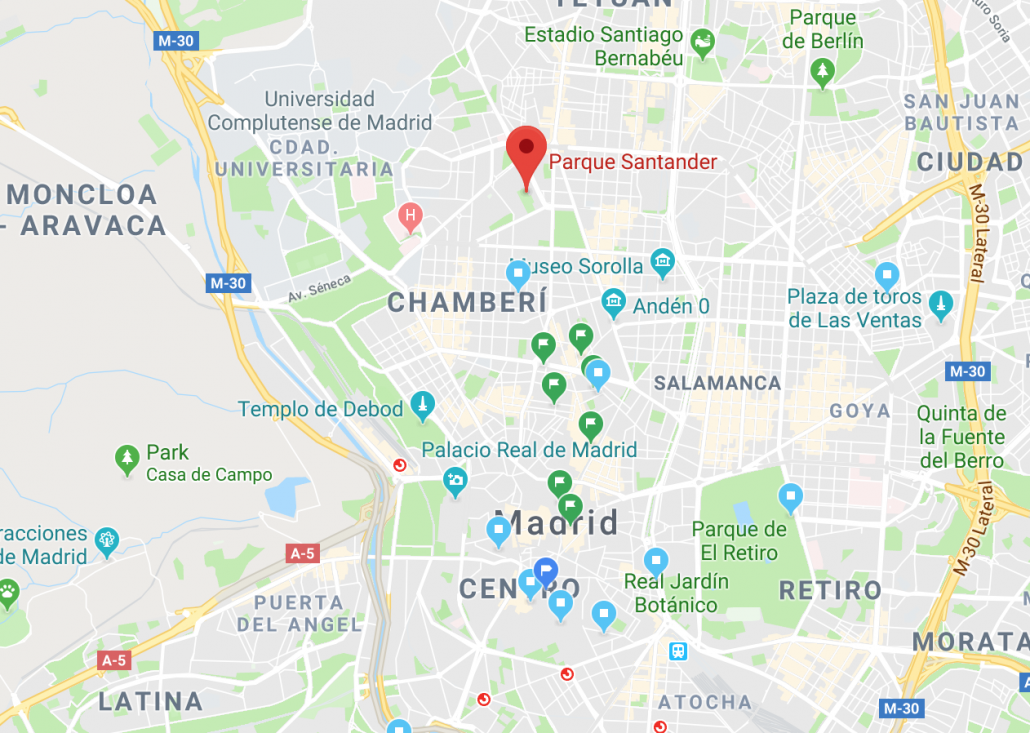
- Meetup Pickup Soccer Games
One of the things I missed most from home was playing soccer regularly. A couple of others in the program would opt to go play pickup at Parque Santander close to the apartments, but these matches were usually organized spontaneously and were played on any random space we could find – dirt, sand, grass, etc. (Protip: if you don’t find an open field, don’t assume that every nice-looking patch of grass is fair game…we had a great time telling local police that we ended up inside private office facilities because we wanted a space to play #ballislife)
Anyway…these games were a ton of fun but I missed out on a lot of them if I had already planned things for the afternoons before the games were organized. The fields were also closer to the apartments than my homestay, so it made it harder for me to spontaneously go out and play.
I also really wanted to break out my cleats. After all, I lugged them all the way from the States for a reason! (No regrets)
Someone suggested I try out the app called “Meetup” to find more organized pickup games. For some reason I had this idealized vision that I could just walk outside and find Spaniards playing fútbol – this might’ve been the case in some regions of the city but I guess I didn’t know where to look or what the good times were to look – or I just watched too much TV where every Spaniard was born with a soccer ball attached to their foot. So clearly this expectation was not my reality.
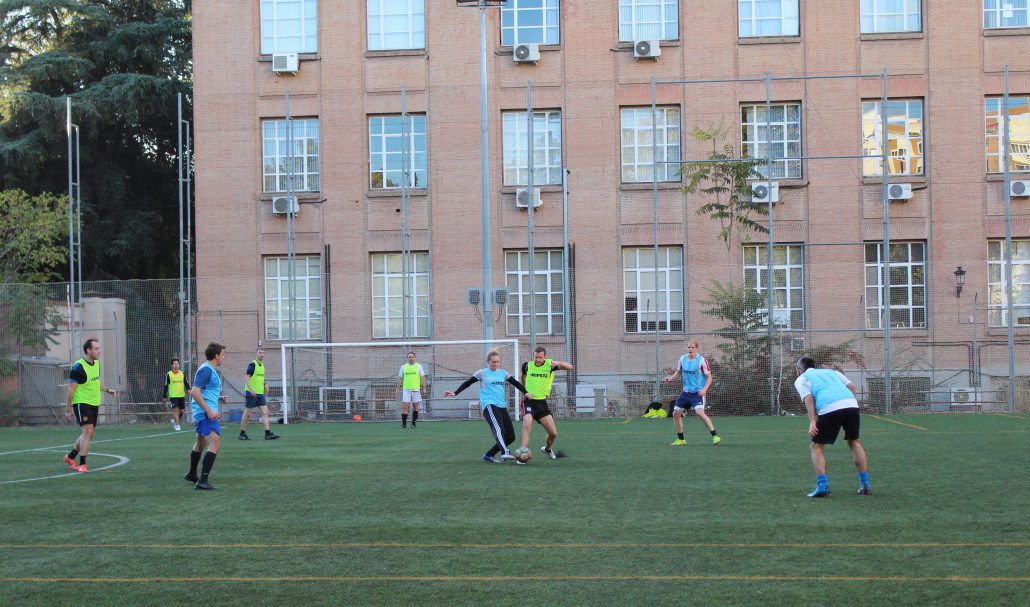
Action shot of me going into a tackle during a pickup game.
By searching for pickup soccer games on Meetup, I at least gained validation that such games existed and happened weekly. These particular matches were co-ed, bilingual, and happened every Sunday from 5-6 PM or 6-7 PM. Each game was 7 versus 7 on a short-sided turf field and cost €5 for the hour. The group even went out to a cafe after the later match to eat, drink, and relax.
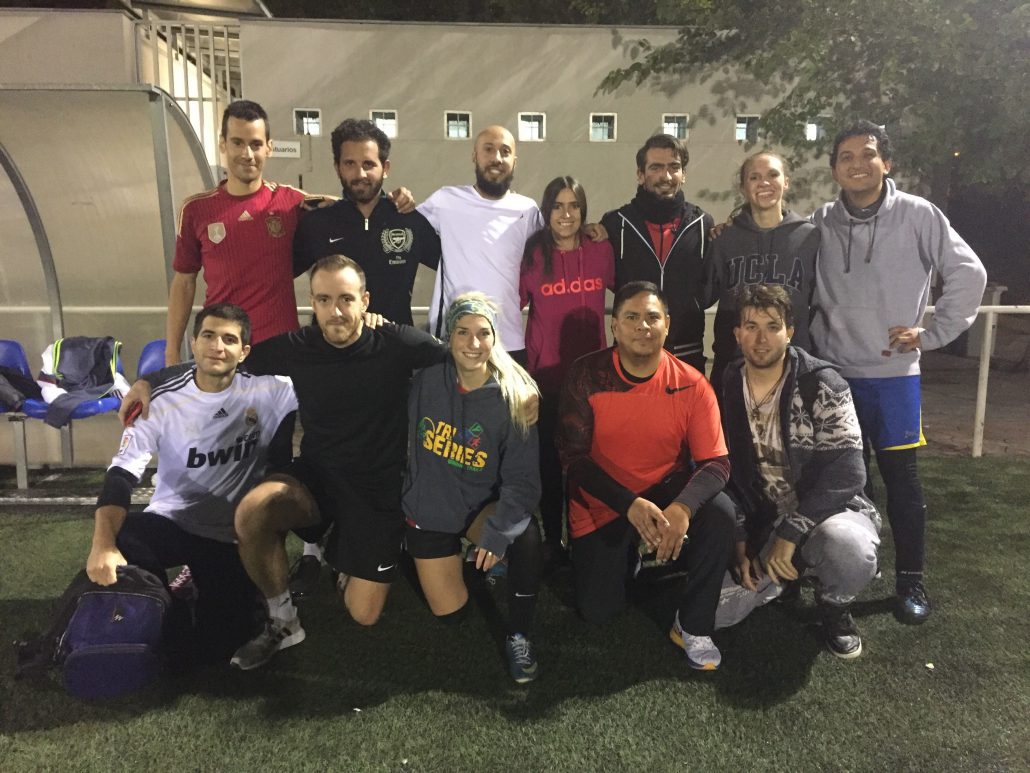
Group photo after one of our games 🙂
Getting out and playing at least once a week whenever I was in Madrid for the weekend allowed me to meet so many cool people from all over the world. Students, teachers, locals – all united by love for the game. I even picked up on some soccer terms in Spanish that I wouldn’t have learned otherwise (e.g. atrás tells someone to watch their back, sube tells someone to advance up the field, etc.)
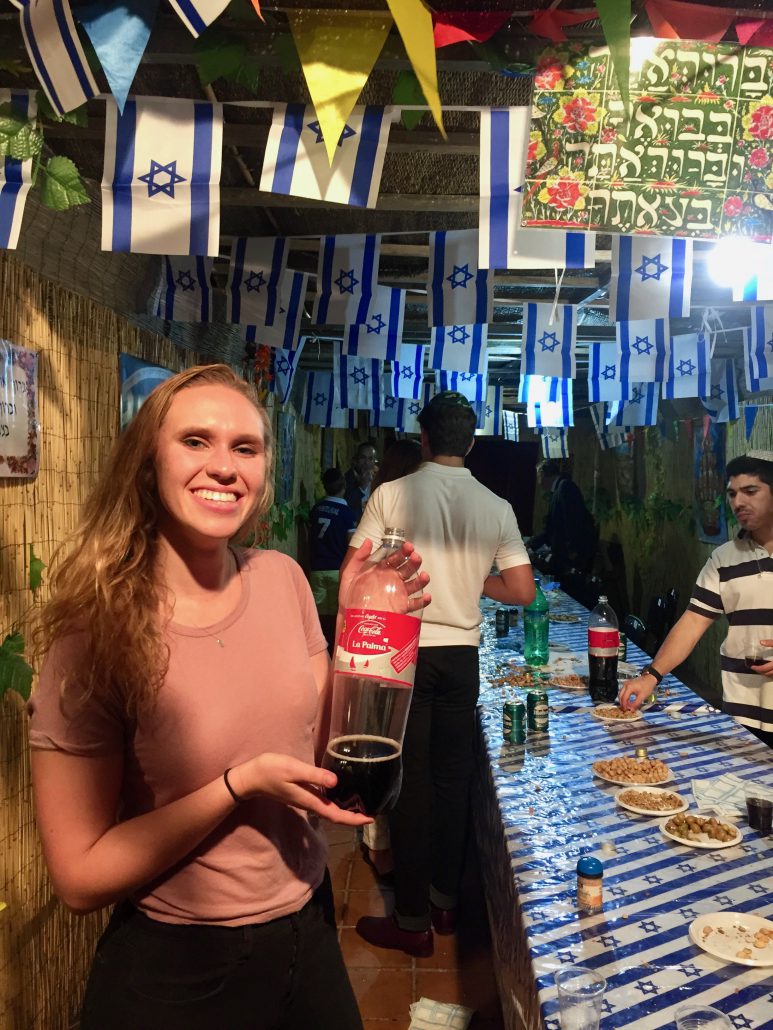
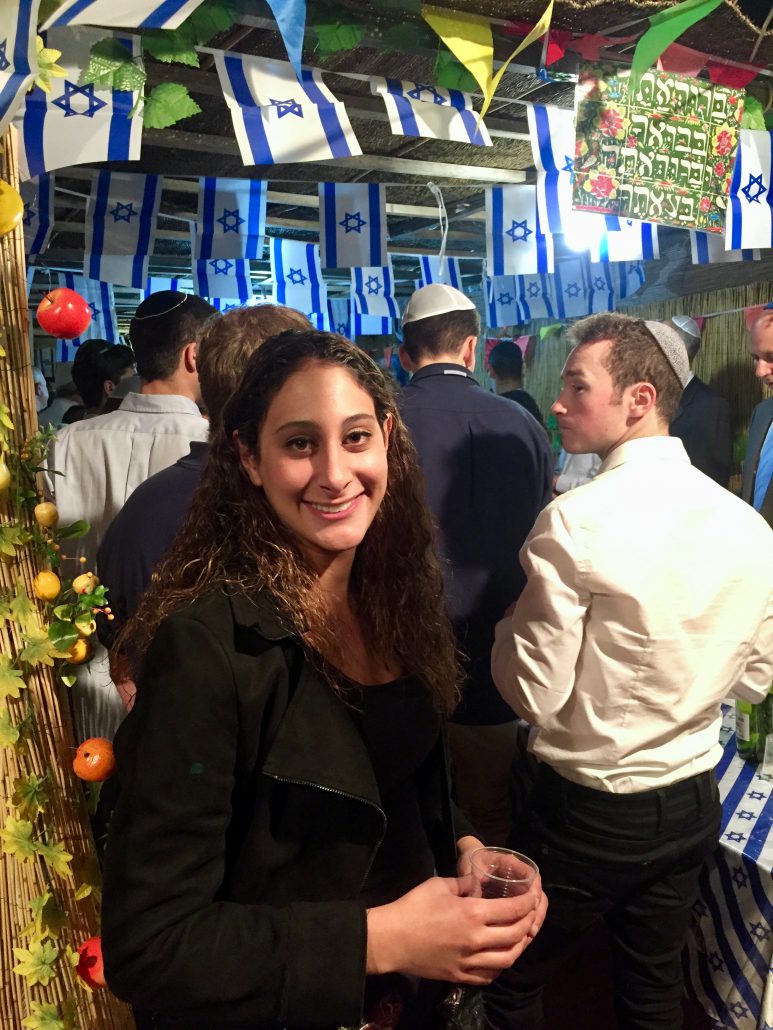
Leila and I at Sukkot reception at CJM
- CJM Dinners & Holidays
The next community I found gave me an outlet for Friday night dinners and annual holidays. Through an organization called Kahal, I was connected to CJM (Comunidad Judeo de Madrid) for the high holy days of Rosh Hashana and Yom Kippur, as well as Sukkot and Hanukkah.
I always love connecting with other Jews around the world because I feel like we have an immediate sense of connection by virtue of our religion and our culture.
Spanish Jewry has an especially complicated history because of years of persecution and complete expulsion in 1492 by the Edict of Expulsion signed by monarchs Ferdinand and Isabella. As a result, the community is a lot more traditional than mine at home and is not nearly as big or diverse as the American Jewish community, even though it is once again starting to grow.
Regardless, after going to a few dinners and meeting other Jewish students studying abroad in Madrid, as well as other native Madrileños and many who came from Latin America and other countries, I felt completely comfortable. After the main dinners, we would join in song; it was really comforting to listen to these tunes even though the melodies were not completely familiar.

A panoramic of the guests at dinner!
One woman I met through the Jewish community invited me over to her apartment for a potluck with her friends one weekend, and that was also a real pleasure to meet people in a relaxed setting revolving around food, friends, and conversation.
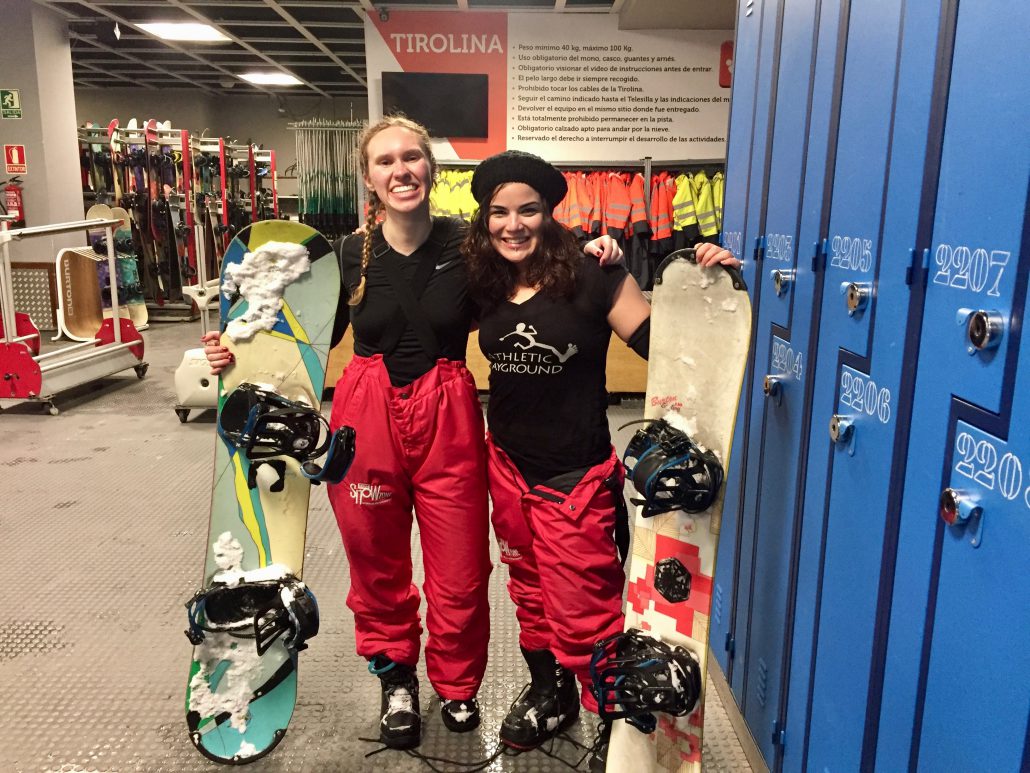
In fact, because of her hospitality, I made friends with one of her pals who later taught me how to snowboard in an indoor snow zone in Madrid!
It was an awesome experience, and if not for these communities I would not have had as many opportunities to learn about cool places in Madrid or fun activities to try.
. . .
Community exists everywhere. I definitely crave it and I think finding those two groups enhanced my Spanish experience exponentially. Not only did I meet people outside of my immediate program, but I also got to connect around a common interest and integrate myself better into Spanish life, if even for a little bit 🙂
So – if you’re feeling a bit lonely abroad, I assure you that community is the key. For me, I tapped into my love for soccer and my connection to Judaism, but there’s so many other groups out there waiting to welcome travelers with open arms.
Con un abrazo,
Nina
Nina Chikanov studied abroad in Madrid, Spain in fall 2017: http://eap.ucop.edu/OurPrograms/spain/Pages/contemporary_spain_madrid.aspx



